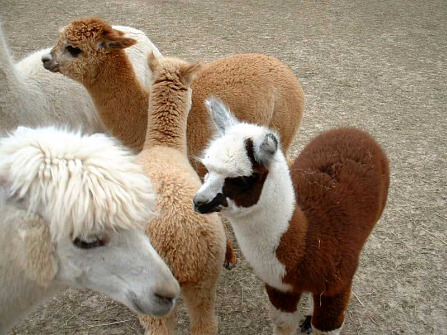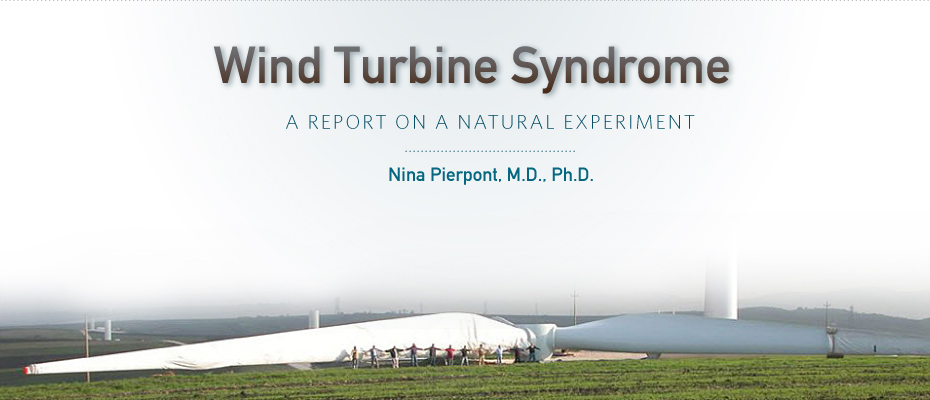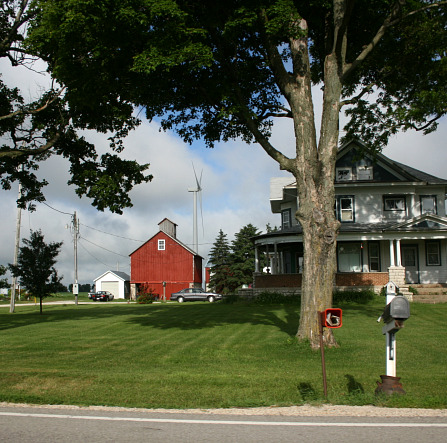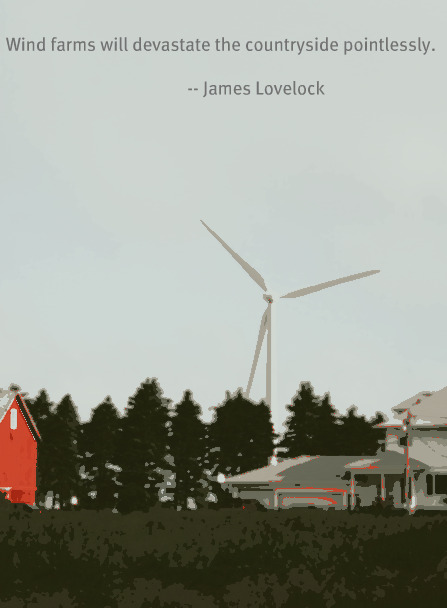"I just know it's not good to live in this house anymore." (Oakfield, Wisconsin)
May 2, 2009
“My husband and I have decided to walk away from our property. I can’t stand it here for another day. I can’t leave soon enough. You may be able to put turbines up behind our home, but that doesn’t mean I am going to do nothing when it affects my family’s health and my animals’ well-being”—Ann Wirtz (4-6-09)

“Grief,” by John Clum, with appreciation
April 6, 2009
In 1997 my husband and I purchased our current property. It was an old farmhouse in the country. We knew it would be work because the house and yard needed so much. So for more than the next decade we spent all our money improving our property and renovating our home. We buried barn ruins that had laid charred for years. We took down old buildings and fixed the ones we chose to leave. We dismantled a total of 3 old silos. We spent $12,000 putting in a swimming pool and deck for our family.
In 2005 we refinanced our home to add $60,000 for all new cedar siding and new windows. We had come so far and were finally seeing that we had improved so much and that everything we envisioned was getting closer after years and years of hard work.
In 2002 I purchased two alpacas (llama type animals) for $12,000 each. I started with 2 alpacas and kept breeding them to build my herd. I currently have 10.
Alpacas are very easy animals to raise. We never had any problems with birthing, breedings or daily care. An alpaca’s gestation period is just shy of a year. This last summer, in 2008, after waiting a whole year for our new babies, we had one mother abort early in spring. Then in late summer our second mother gave birth to a stillborn baby.
Is this coincidental? I don’t think so. Year after year I never had any problems, and then I lose two babies the first time I re-breed after the turbines were up.
I know it is not coincidental because the sounds that echo through the metal pole-shed our animals live in are unbearable at times. It is like being in a tin can with echoes of jet engines running right outside. I spent an entire night out there while caring for the birthing mother and I knew in my heart what had happened here.

Photo by Kickapoo Creek Alpacas, with appreciation
Alpacas are gentle animals and, since dealing with the wind turbines, we have seen a huge change in the behavior of our animals. They are no longer gentle. They are very jumpy and always stressed.
All the years prior to this we never saw this behavior.
When we found out about the wind turbines that were going to be put up around our property, we listed our home for sale. Even without the remodeling complete, all realtors who came through thought it should bring a price of over $300,000. We had an appraisal done that appraised the property for $315,000 as it sat.
We had several interested parties, but everyone that looked at it asked what the roads were that were going in down the road. As soon as anyone found out they were the driveways for wind turbines that were to be constructed, the interest in the property stalled.
Month after month of getting the house perfectly cleaned for showings, we decided to just take it off the market.
My three older children are from a previous marriage. Their father and I divorced years ago when they were little kids. When the kids were little I always feared he would quit his job and I would not receive child support. Fifteen years later this fear came true.
In May of 2008 my children’s dad left his job after 25 years of employment. I did not receive any child support from April to December of 2008. And even now it has been a struggle to get him to pay anything at all. I had to pay an attorney to take him back to court several times.
In June of 2008 several of our rental properties we had owned in the City of Fond du Lac were flooded. Three units were even condemned. We found ourselves faced with a financial disaster. We were faced with foreclosure on our condemned rental properties.
From there we looked at what we could do to restructure our financials. We had lost a lot of money in the rental properties. The animals I invested in are now a great risk to pay $1000 to $2500 to re-breed. So, in turn, my initial investment costs are wasted.
Everything we had was turning upside down fast. I had to make a decision. Did it make sense to stick any more money into our home to finish it? We were already being told we couldn’t sell it for even close to what we already had in it. We had watched neighbors’ homes sit on the market for years.
I am a mother of four children, and all these years we thought our home would be our nest egg. Now it is only another losing gamble as to if we could ever sell it. Not because of today’s market, but because of the turbines behind our home. I talked with a couple of realtors and heard time and time again that people will not pay big money to live near these wind turbines. I was told we would have to price our home under $200,000 in order to interest anyone. This is the same home we had just had appraised at $315,000.
My husband is seeing a doctor for depression. I have a daughter who is seeing a specialist for serious stomach problems. I have had endless sleepless nights since the wind turbines went up. I constantly have feelings of anxiety. My children have complained of headaches and not sleeping well.
Let me ask you, What would you do?
I have been forced to make a decision I never thought I’d have to make. My husband and I have decided to walk away from our property. We can’t wait years to sell it.
I can’t stand it here for another day. I can’t leave soon enough. You may be able to put turbines up behind our home, but that doesn’t mean I am going to do nothing when it affects my family’s health and my animals’ well-being. The only recourse I have at this point is to just walk away.
I have a 21-year-old daughter in college, a 17-year-old son, a 16 and 8-year-old daughter.
It’s too late for me to take any more chances. I have kids I need to get through college. I don’t know how I’ll do it. I just know it’s not good to live in this house any more. This property I once loved and was so proud to own is of no use to me.
I have worked 60 hours a week for years, only to find myself with nothing. But my health as well as my family’s cannot be sacrificed.
So as you read this, I do not know where we are going to live, but I do know it won’t be under a wind turbine or anywhere near one. The safest bet would to find a house right next door to the people who determine these setbacks, because no matter what they decide, it seems they are never the people affected.
Ann Wirtz
N11957 Hwy YY
Oakfield, Wisconsin 53065 (temporarily)
May 2, 2009 update: “We will be leaving in the next few months, as soon as we decide where exactly we are going. We have let foreclosure proceedings start. We were in court yesterday.”
Editor’s note: Gerry Meyer (see his turbine diary) is Mrs. Wirtz’s neighbor. “Alpacas,” he was told by Mrs. Wirtz, “give birth from 6 am to 12 noon, due to the fact they are mountain animals. This gives the newly-born alpaca time to dry off and get some strength in its legs before the cold night sets in. Before the turbines, her alpacas did give birth that way. Since the turbines went up, they have been birthing in the evening or even night-time.”





Comment by Leo Sobers on 05/02/2009 at 4:47 pm
Dear Mrs. Wirtz,
I am so sorry to hear of your predicament. There are many more like you and judging by what I have been reading, there will be many more in the future.
My sympathy goes out to you and your entire family.
The wind companies are in the business of making money and ‘MONEY’ seems to cloud its judgement. If one tries to reason with a person without scruples, this is often the result.
I am saddened to say there is much money to be made in the industry and the behaviour of the industry has been ‘ JUST THAT.’ The industry is now trying to expand in many developing countries, using the same tactics as those adopted in the industrialised countries. Many of those developing countries are not yet aware of the tactics employed and those few who are aware have not been able to spread the message to a wider audience.
On my small Caribbean Island an international company carried out what they termed an Environmental Impact Assessment(EIA), accompanied by glossy brochures indicating the benefits of having turbines, expressing the love tourists have for wind turbines, and stating the amount of carbon dioxide saved from the atmosphere and so on.
When I learned of the ‘scheme’ and questioned the distance form dwellings I was met with a belligerent attitude that they knew and I did not. Of the several projects in many countries, I have not read of one industry’s officials who lived near the wind farm. Once the project is up and working it is impossible to find some one who would lend you his ear.
The USA President has been touting wind and other renewables some time before he was elected,
but I cannot recall reference to distance. All that one is requesting is to place the turbines at a safe distance from dwellings.
The President appears to be a reasonable man, an intelligent person who reads and listens. I hope the message reaches him sooner rather than later, seeing that the wind industry is paying scant regard to those in the know, like experienced engineers and doctors.
I must also note that as most countries appear to be adopting wind turbines, the industry appears to be using the same model of explanation for all countries, whether big or small. Your case will be repeated around the world many times.
I therefore would urge all those who care about themselves and others to do whatever is in their power to encourage the World Health Organisation (WHO) to adopt sensible guidelines for the industry on distance from homes and where people congregate.
Editor’s note: Leo Sobers, a prince of a man, lives in Barbados.
Comment by Cathi Orr on 05/02/2009 at 9:54 pm
Seems like years ago that I spoke with Calvin Martin about what to do with a crooked town board In Orangeville, New York. He enlightened me on finding wind turbine contracts at the Wyoming County town clerk’s office, and runnning advertisements in the Pennysaver with info. on contracts, on the town board, etc. Now Clear Skies Over Orangeville is an offficial rural preservation coalition and we are headed toward our first Orangeville public hearing, May 7, 2009. We hired Attorney Gary Abraham and he will give an address on noise….